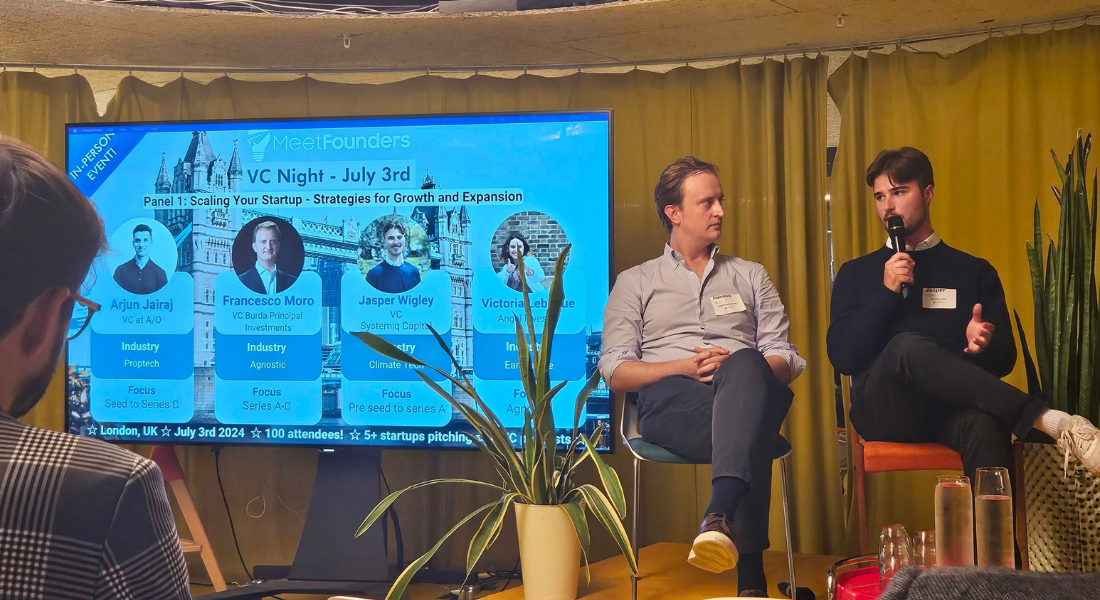This summer, the Fourth Day team launched a new event series called Honest Talks. The idea was to bring together a group of business people in an intimate, relaxed group, to discuss issues that often feel too big, that might make us feel uncomfortable, or that have the potential to go undiscussed.
We kicked off the series in Manchester, with a look at gender in networking, and last week we wrapped up event number two in London, where we discussed the impact of alcohol in modern working culture.
With any event, there is a certain amount of planning to ensure everything goes off without a hitch. This is especially true if this is your first event, or you’re a smaller business that doesn’t necessarily have a giant budget or infinite resources. As someone that’s been there, done that, (for clients and ourselves!) we’re sharing our top tips for making your event a success.
1. Start by writing a brief
It’s great when you come up with an idea for an event you feel confident people will be interested in. But it’s all too tempting to rush off and start ringing venues or organising the drinks and nibbles.
Start by pulling together a one-page brief which outlines the premise of the event, why you’re doing it and what you want to achieve. This is great for making you think about the logistics and, crucially, why other people might care about it.
Consider that you’ll probably have to convince someone to allocate budget for the event. Your outline should tell them why it’s worth the money and quantify the benefits for your organisation.
Lastly, writing a brief saves you time in the long-run. You now have ready made content that you can share with panellists or guest speakers you want to get on board, use as the basis of your Eventbrite page and turn into enticing prose for your email invites.
2. Picking your venue
The good news is that there are heaps of co-working spaces, many of which have an events space. The key is picking the right one – one that’ll create the right atmosphere. An open-plan space with a raised stage where your panel can assemble is great for getting more people in, but can often create an us (the panel) and them (the audience) atmosphere which makes interaction between the two more difficult.
For our first Honest Talks, we worked with the brilliant Accelerate in Manchester who have a cosy amphitheatre where the audience members were close to the panel and everyone could chip in – perfectly in keeping with the frank, honest nature of the night.
Many of these co-working spaces are happy to offer the space for free. But consider what you can offer them in return. Maybe it’s a case of helping to PR the event (and space) through social channels, a press release or a guest blog on your website. You may invite them to do a quick talk at the start of the event to introduce the venue, or to have some literature on seats. Of course, some venues will charge but may be happy to get involved in a contra deal via some of the tactics above.
3. Your panellists
Your speakers or panellists are likely going to be the main draw for would-be attendees. Yet a common mistake people make is looking for a ‘big name’ versus someone who has something authoritative to say on the topic. Truthfully, it’s about finding a balance between the two. Having someone who’s well known in the community is always a positive, but they also need to have a reason to join the debate. Have they spoken out on this topic before or shown an interest in some way? Similarly, it’s up to you to create a compelling case for why they should give up their time. This is where your initial brief comes back into play, but researching who they are and what’s on their agenda is crucial.
On the day – your event management checklist
If all else fails, this quick checklist should help to keep things on track:
- Remind people! – the reality is, people are busy. Telling them about the event two weeks ago isn’t enough, so schedule a reminder the week of, and again 24 hours before.
- Briefing your panellists – whether they’re a seasoned speaker or not, joining a panel (especially on controversial topics) can be daunting. Providing a briefing sheet with an outline of some talking points and how the event will play out helps them to prepare and know what they can expect on the day.
- Drinks and nibbles – most people don’t expect a three-course dinner at networking events but make sure you have a healthy mixture of alcoholic and non-alcoholic options and a few snacks on hand.
- There’s no ‘i’ in team – no-one likes being first to the party. If your event kicks off at 6pm, ask your lovely colleagues to arrive at 5.45pm, helping to fill the room and welcome those first guests.
- Mingle! – it’s very easy to get distracted once your event kicks off but make sure you spend time meeting your guests – and introducing them to one another. We have lots of clients who work in similar industries or have some mutual ground; these events can be a great way to introduce them to new contacts. Equally, this mingling time is great for your panellists to be introduced, if they haven’t already.
- Delegate – don’t be a martyr and take everything on yourself. Allocate specific tasks to people within your team – someone may be charged with helping on set-up, while someone else takes over your Twitter feed for the night.
- Your compère is your safe pair of hands – I can’t underestimate the value of a good compère – they are essential to facilitating the conversation and getting people talking. We’ve worked with a mix of great people in the past and most recently business psychologist Rupert Cornford who is brilliant!
- Thanking your panellists – if your panellists have given up their time for free then make sure you thank them! Having a bottle of fizz or a box of chocolates ready to hand them after the event always goes down well.
- Post-event activity – just because the event is done and dusted, doesn’t mean it’s the end! Having a follow-up plan in place is a great way to keep momentum up. It might involve a Pulse post from your speakers recapping key themes, or a note inviting attendees to register their interest for future events.
Share this:





